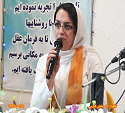In the Name of the Supreme Power, Allah
The 14th session of the 84th round of Congress 60’s educational workshops, held for both travelers and companions, began on Thursday, Ordibehesht 17th 1404 (May, 14, 2025), at 10:00 a.m. The session was led by Mr. Hossein Dezhakam as the master of the ceremony, with Mr. Jafar, the traveler serving as the secretary. The agenda of the day was “What have I done to strengthen the financial and scientific foundations of Congress 60? “
Hello friends, I am Hossein, a traveler. I hope all of you are well; I am also doing well, thank God. Today is the 24th of Ordibehesht, 1404 (May, 14, 2025). How quickly Farvardin passed, and now Ordibehesht is almost over. It is 10:06 AM. We are in the Academy building in Tehran. Today's agenda is: “What have I done to strengthen the financial and scientific foundations of Congress 60?” This is a topic where everyone must speak about themselves. Congress 60 meetings always focus on the individual—each person must analyze themselves. For example, when discussing the “First Valley and its impact on me”, sometimes we forget and say that the First Valley is thinking, and that others must think, must do this or that. Instead of stating our own experiences, we begin teaching and ordering others. The same applies to etiquette—when the agenda is “etiquette”, we should speak about our own experiences. However, there times when you don't know a matter and sometimes I feel obliged to tell you, but that is something different.
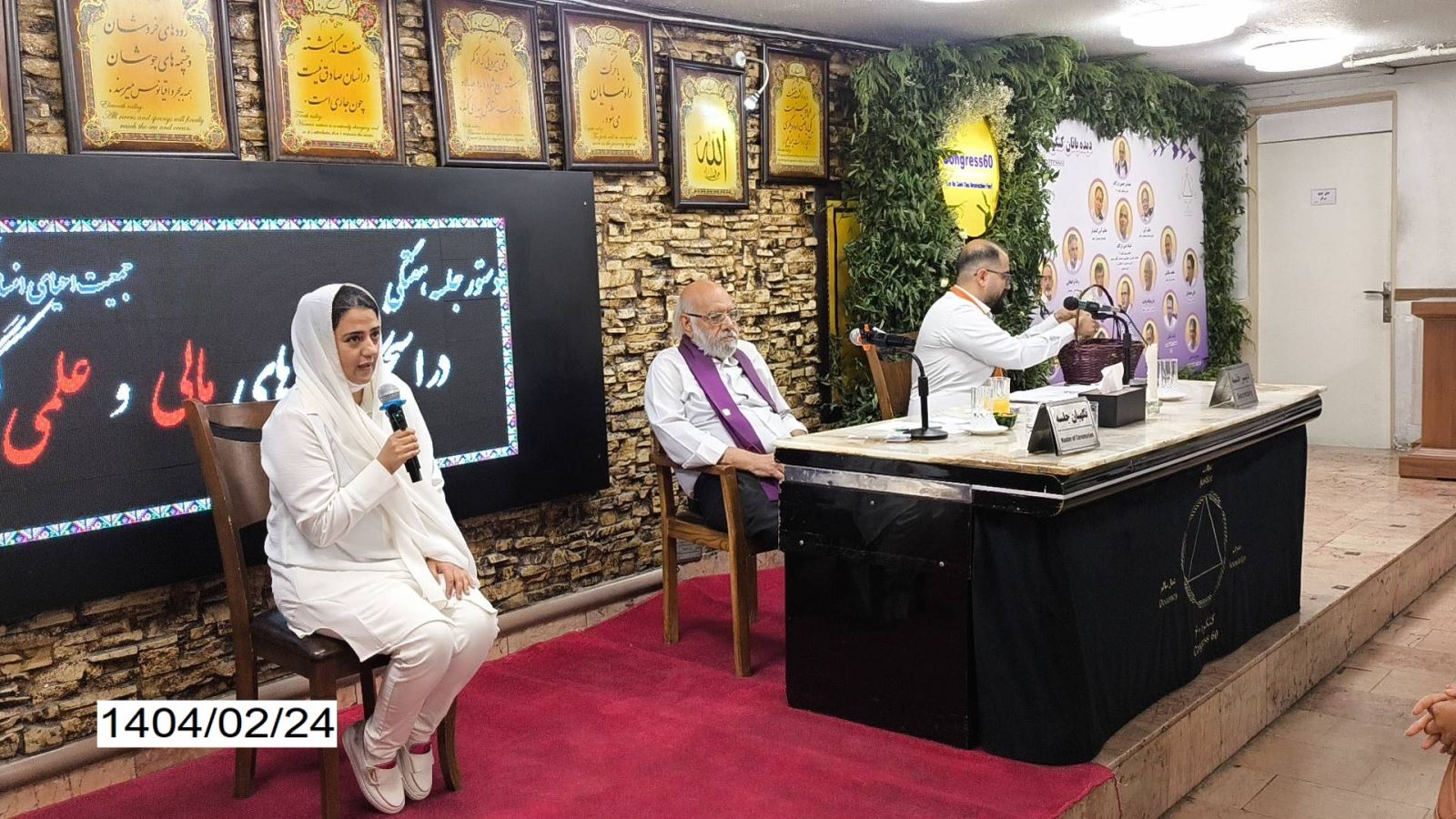
Congress 60 immediately sets an agenda for any issue it encounters. For instance, sometimes in meetings, everyone interferes in each other's affairs, so we call the session “Nosiness.” Then, the agenda of “Nosiness” is added to the annual agendas. Everyone discusses the topic in depth, examining whether they themselves are nosy or not, whether they meddle in others' affairs or not. Similarly, an agenda might be: “Why do we live? Why do we seek treatment? Why do we go to university? Why get a degree? Why do certain things? Why lose weight? Why gain weight?” All these are session topics, scrutinized thoroughly. Another common topic is: “What has Congress 60 done for me, and what have I done for Congress 60?” This leads to an evaluation—what has Congress 60 given me, and what have I given Congress 60? Congress 60 members undergo training step by step. Through this process, they have not a sense of entitlement. Otherwise, people always feel entitled—to everything—because they haven't received proper training.
Nobody asks them: “What about me, myself? We are part of a family—your family has done so much for us. What have I done for my family? You are part of a company—what has the company done for you? What have you done for the company? You are an Iranian—what has Iran done for you? What have you done for Iran?” Sometimes people respond: “I have done something for Iran, but Iran has done nothing for me.” Congress 60 highlights responsibilities—because, in reality, everything in existence carries responsibility. Even God, for example, has responsibilities—God is not without obligations. Even God, beyond human beings, has accepted responsibilities and declared them:
In the holy Quran, God mentions “What He has created for us, saying I created the earth, I created water for you, I send rain from the sky, I created plants for you, I provided this and that, I sent prophets.” You see, God always outlines His responsibilities and acknowledges them. There is nothing in existence that lacks responsibility. If every individual accepts their duty, society thrives; otherwise, it collapses. As we have said before, constructive people rebuild ruins, while destructive people ruin what is already built—it is a simple truth. Right now, within Congress 60, everything is in balance, thank God—whether in terms of education, expertise, knowledge, or finances. Meanwhile, all NGOs, even those in the U.S., are entering a crisis monetary stage.
The world's largest research centers are facing financial crises, as are the largest educational institutions. Harvard, for example, is currently experiencing financial difficulties. It used to receive $2.3 billion annually from the U.S. federal budget and charged some students between $100,000 and $150,000 per term. Now, [by President Trump’s order] its funding has been cut, suspending all ongoing research projects. Stanford is in the same situation, as are many other universities and institutions worldwide. Research centers across the globe are struggling, just like numerous NGOs that relied on external financial support rather than standing on their own feet.
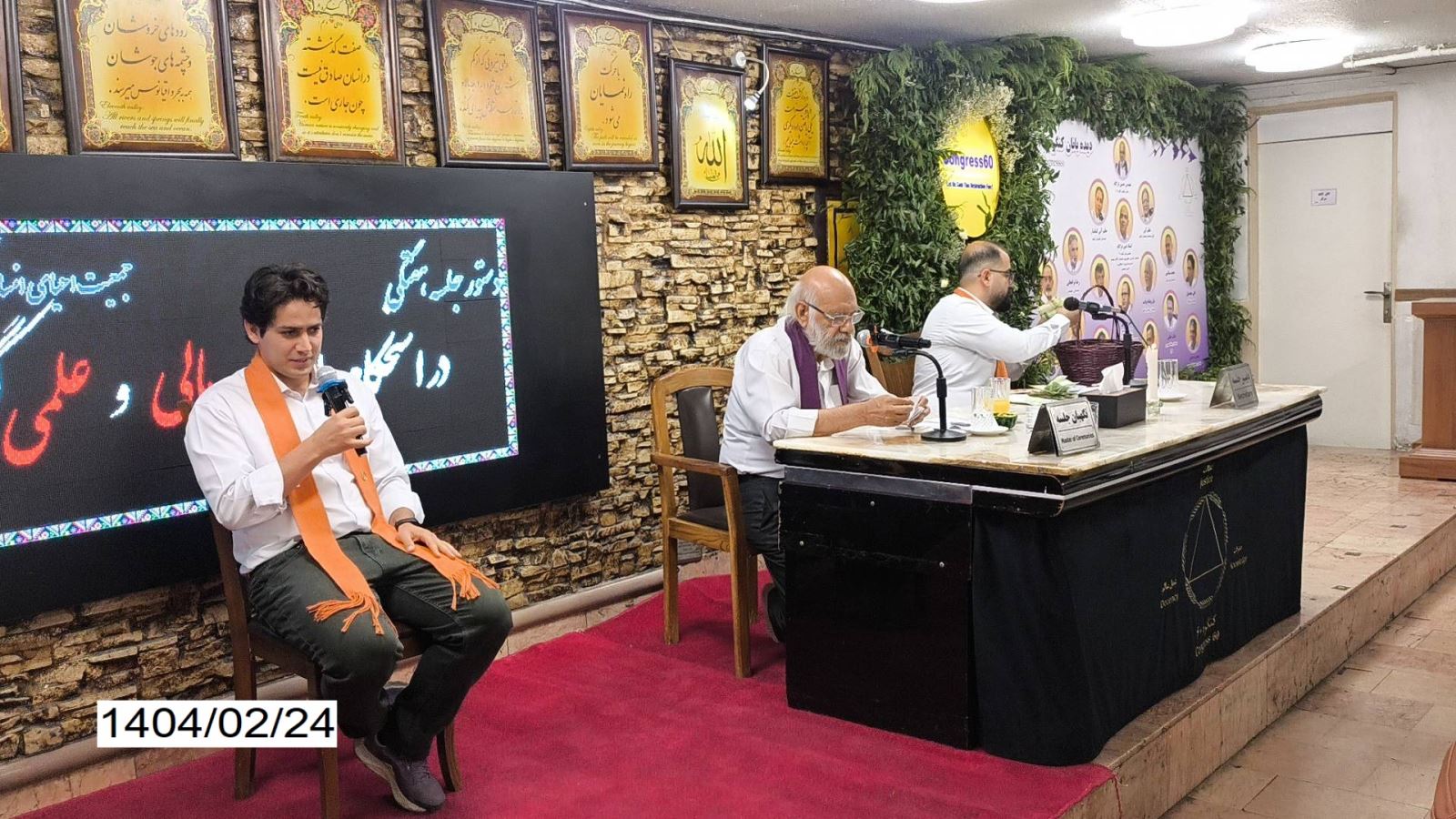
If I were in charge, I wouldn’t give Harvard a single cent. It is a center of knowledge, and if knowledge has real value, it should generate money. If knowledge cannot be monetized, then it will be stumbling and struggling. Any knowledge that is generated can be turned into profit—whether it’s an invention, a discovery, or a breakthrough in medicine. Developing a vaccine leads to financial gain. Creating a new heart medication or fever remedy turns into revenue. Designing an electronic circuit chip or an exceptionally crafted kettle can lead to money. Knowledge always transforms into money; if it doesn’t, it means it has not enough science. People are all consumers of knowledge because knowledge must yield tangible results. The airplane was an invention, and its development led to enormous financial growth. Boeing aircraft continue to be produced, generating profit. Everything in this system revolves around converting knowledge into financial sustainability, and societies must be able to stand on their own.
Congress 60 sets agendas where each person reflects on their contributions. Even if some individuals do not actively participate in discussions, they internally question themselves: “What have I done?” “I attend Congress 60, but what am I contributing?” The annual costs for members can be significant—50 to 60 million tomans per year. What am I offering in return? Today alone, I helped at least seven or eight individuals break free from overweight—people who have lost 15, 16, 25, even 24 kilograms, most of them women. Do you realize what you have gained? What has been achieved? Losing 24 or 25 kilograms is one aspect, but beyond that, individuals who were previously mocked for their appearance—called overweight, chubby, or any number of offensive terms—are now free from that stigma. Society tends to criticize anyone who deviates from the norm, labeling them unfairly. The real transformation is not just in physical weight loss but in health improvements. Many had multiple health issues—three, four, five, six, even seven ailments—that have now been resolved, when their overweight is resolved. Now can you estimate the value of this achievement?
If you’ve lost 25 kilograms and also recovered from illnesses, what is that worth? One must calculate and understand the true impact of this journey, being liberated from overweight. It is not just about paying money but appreciating the transformation. Individuals should recognize, “Since Congress 60 has helped me without asking for anything in return, I should also contribute.”
Compare the method of Congress 60 to the common current medical treatments for weight loss—how much would you pay to reduce weight through surgery? A doctor would perform an invasive procedure, cutting your Abdomen, removing fat and performing liposuction. The cost could be 120 to 130 million tomans, or at least 70 to 80 million. What about the risks and complications afterward? Now, consider what Congress 60 has done for you [Congress 60 has helped you lose weight with a very simple method]—how have you given back? Have you shown appreciation to your guide? Have you expressed gratitude during Guide’s Week or on the day of liberation [from addiction]? This is a crucial realization: every individual must ask themselves what Congress 60 has done for them and what they have done for Congress 60. Fortunately, most members of Congress 60 grasp this concept through education. They actively contribute, preventing financial crises within the organization. Otherwise, we would constantly struggle—writing checks with uncertainty, begging for help from different organizations, looking to domestic and international sources, seeking funding from the European Union or other countries. Instead, we have fully established financial independence and stood firmly on our own feet.
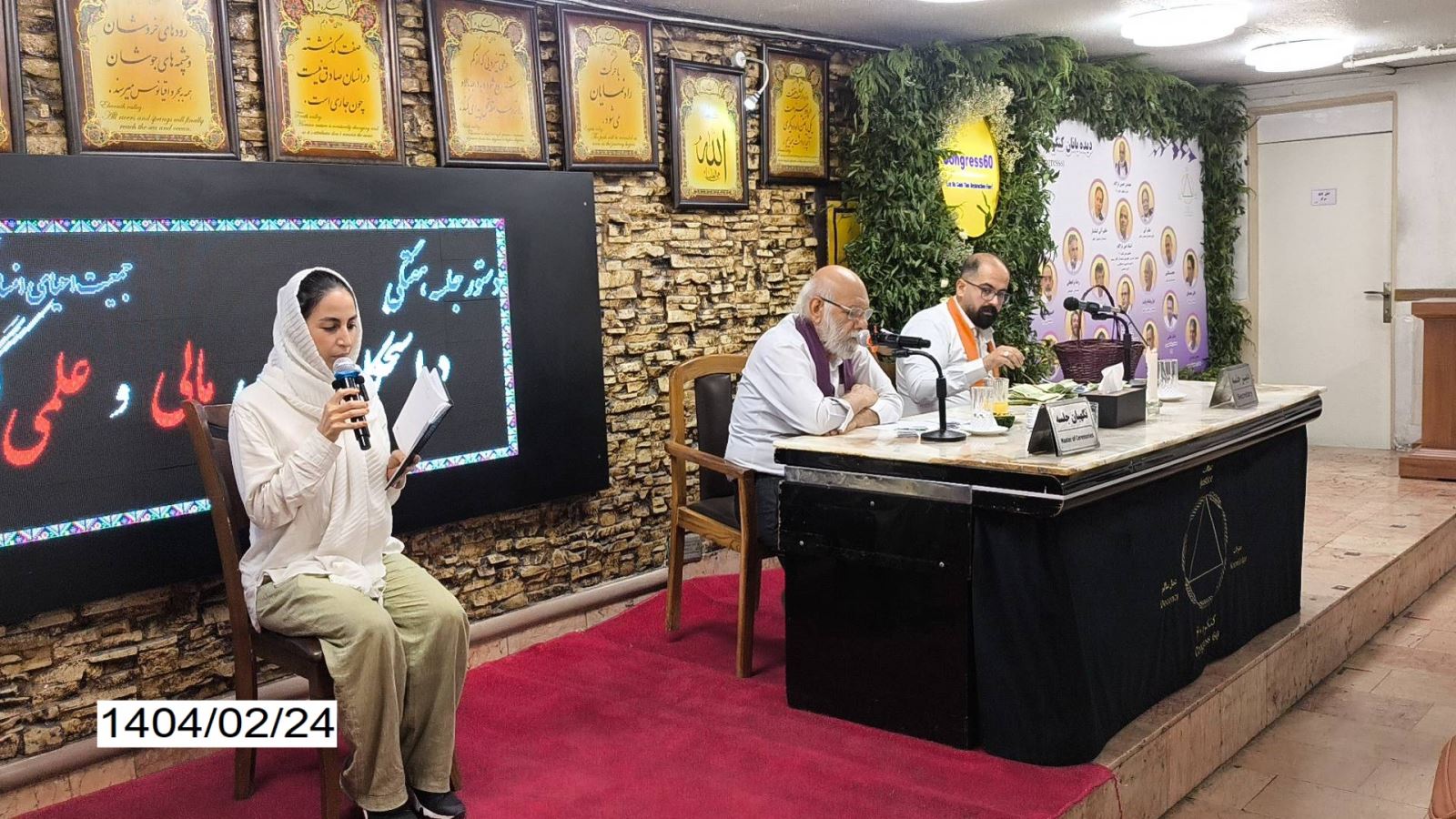
Every organization, every institution that aims to take shape—whether it’s a country, a family, an individual, a village, a farmer, or even shepherding must possess three essential elements. Shepherding, after all, was a profession of the prophets.
1. Knowledge: They must have the expertise related to their field. When I entered the realm of addiction treatment and established an NGO, the foundational knowledge was the DST model—the methodology for treating various addictive substances with the goal of complete recovery. This is the knowledge I provided. Most treatments practiced globally merely control conditions rather than cure them. Take multiple diseases like MS, which has only been controlled for the past seventy years without a definitive cure. Apart from orthopedic surgery, modern medicine hasn’t truly cured anything in seven decades. MS patients are managed with lifelong treatments. Ulcerative colitis patients receive lifelong medication. Bipolar disorder requires lifelong medication. Schizophrenia demands ongoing pharmaceutical control. Epilepsy too—lifelong medication is prescribed.
For example, consider someone diagnosed with ulcerative colitis at age twenty. If they live to fifty, they will still have the disease, and within those years, if they have eight tablets daily, they will have consumed nearly 300,000 mesalazine tablets just for maintenance. Factoring in other medications, that number could rise to 400,000, 500,000, 600,000, or 700,000 pills over thirty years, yet their condition remains unchanged. The same applies to Sjogren’s syndrome, rheumatoid arthritis, epilepsy, endometriosis, cancer, and countless other diseases —all managed but never truly cured.
Yet, here in Congress 60, we have introduced definitive cure models. Today, we have over 90,000 individuals who are completely free from addiction. The method is so robust that even if they enter environments like opium dens or heroin laboratories, they remain unaffected. That’s real transformation.
Similarly, I provided knowledge-based solutions for cigarette addiction, obesity, and weight loss, presenting the simplest approach with no suffering, no restrictions, and no complicated diets —in fact, people often eat more. The same protocol that enables weight loss also facilitates weight gain for those who struggle with being underweight, offering balance without distress.
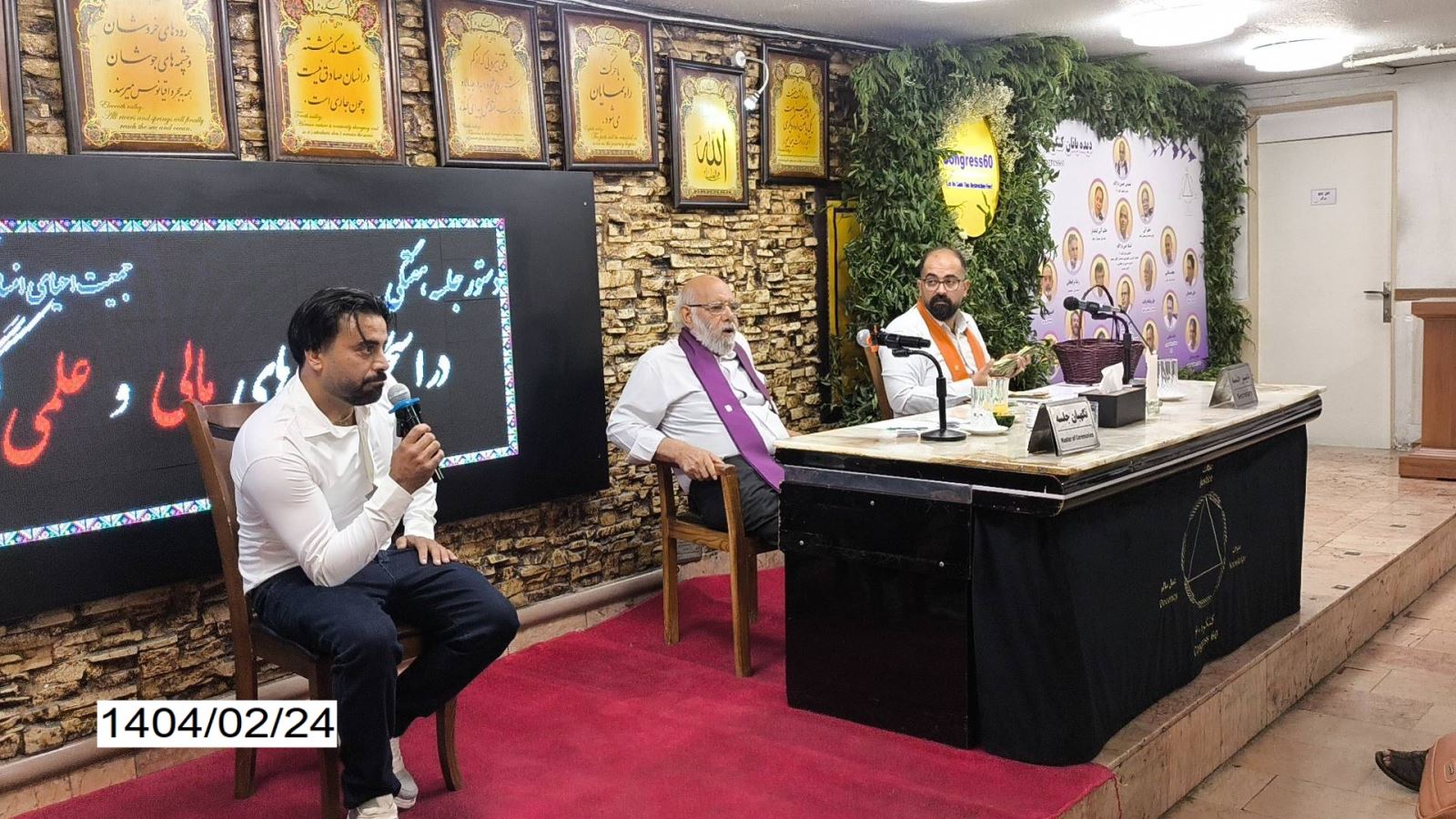
Congress 60 has also conducted groundbreaking research into various diseases, creating world-renowned solutions for cancer treatment, experimental lab studies on mice, and even establishing its own university. This is applied knowledge in action. D-sap methodology has been introduced for colitis, influenza prevention, and numerous other health conditions. Consuming D-sap has been shown to prevent countless diseases and alleviate issues like chronic constipation.
Additionally, I developed D-sap cream, an unparalleled formula. No other skincare product compares. It is the best treatment for bedsores, acne, infections, burns, and overall skin nourishment. It enhances beauty, rejuvenates skin, restores hydration, and eliminates fine wrinkles. Beyond this, I have authored numerous books to enrich understanding, contributing solutions where needed. And yet, there’s still so much more—but not everything needs to be said.
From the perspective of expertise, how many specialists have we nurtured? How many individuals who were once heroin addicts, opium users, or heavy substance abusers have now become the best guides? Some of these specialists have successfully cured over a hundred people—some even more than 120 or 130 individuals.
This year, our Guidance exam had over 12,500 participants. Out of these, 3,000 individuals will become certified guides—whether in the family group or among the men’s section. They will receive either the orange or green scarf as a sign of their achievement. Last year alone, over 3,000 specialists qualified, amounting to approximately one-fourth of the total candidates. This includes those with green scarves, orange scarves, men, women, travelers, and companions—all playing crucial roles in the system.
Beyond these, we also have specialists dedicated to sports, agents who manage each branch’s affairs, Didebans (watchmen) overseeing administration, and Marzbans (border guards) who act as directors. Even within the OT sections, professionals are present across all levels. In total, we have at least 6,000 to 7,000 specialists actively working within Congress 60.
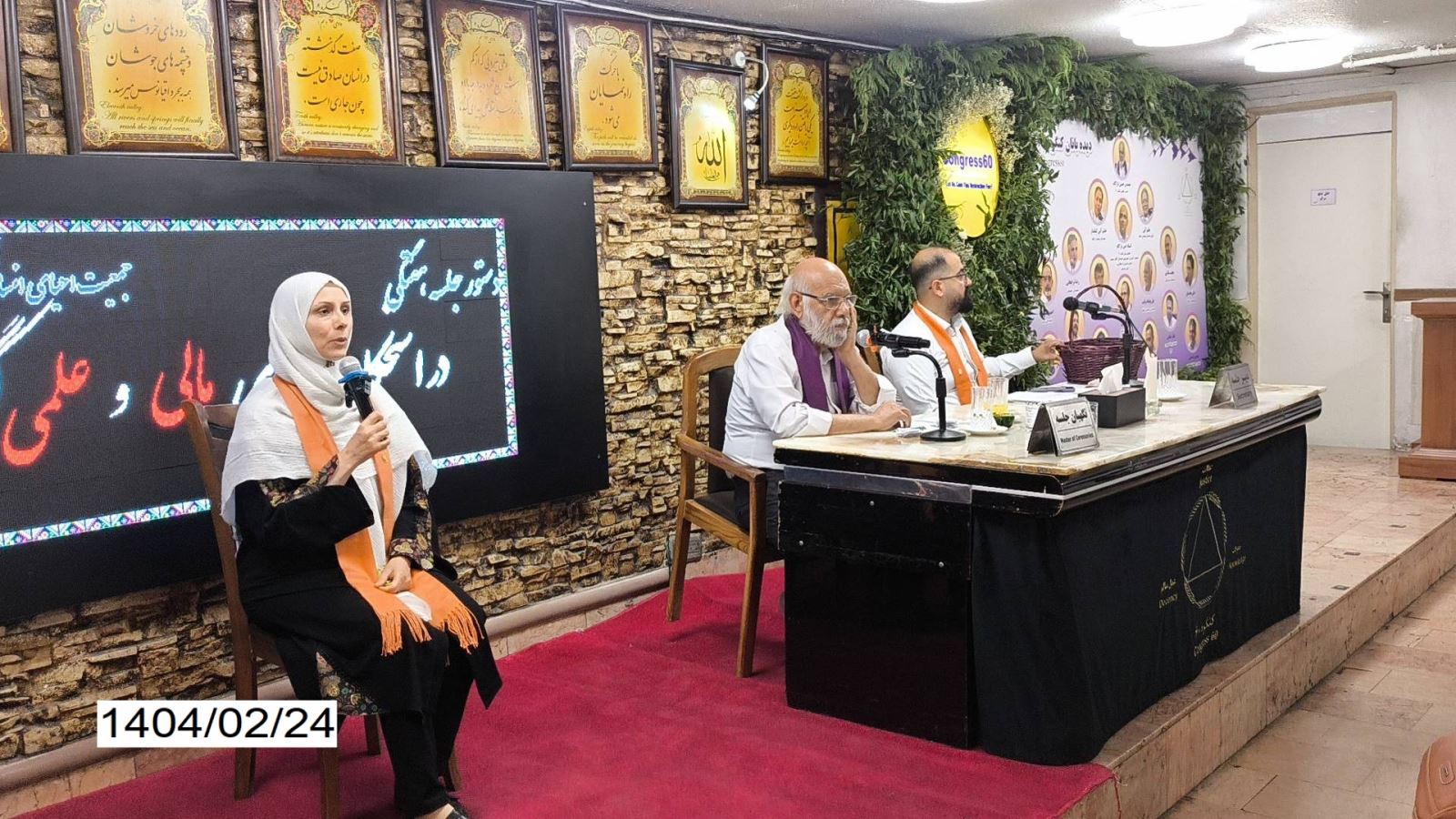
Now, turning to capital and financial sustainability —what actions have I personally taken in this regard? Last year, I made a direct contribution of 2 billion tomans to Congress 60. On top of that, I allocated 800 to 900 million tomans for addiction research and prizes. Besides this two billion donation, there were numerous additional expenses and operational costs, which I won’t even account for in detail.
Beyond my financial support, I have built structured financial models within Congress 60, establishing financial legions [called Sardar legions] that sustain the system. I developed Donor systems, and Pahlavani structures, each tailored to ensure financial sustainability [Donor is a person paying about 1000 dollars and a Pahlevan is a person who donates 600 million tomans (10000 dollars) annually]. We do not accept external financial contributions—all resources come solely from within Congress 60. These contributors provide financial support like streams feeding into a river—some Congress 60 members bring small amounts of money like bringing water in buckets, others in metal cans, and some operate like massive tankers carrying 12,000 liters, pouring into the system. Everyone plays a financial role, but what’s interesting is that the collective donations from those bringing small amounts have surpassed contributions from those donating 600 million tomans (10000 dollars) in lump sums. In total, Sardars' Legion cumulative donations exceeded these large individual sums.
Guides should take the initiative to encourage participation —educating their students about their responsibilities toward Congress 60. I rarely see guides teaching their students, for example, during Agent Appreciation Week, a guide might say, “Put only 10000 tomans in the envelope—it’s enough.” Or “Everyone should contribute 50000 tomans and give it to the agent or border guard.” They set limits for their pupils’ donation, which is the greatest betrayal to Congress 60. A guide restricting donations stifles the growth of the organization. Instead, they should teach students true generosity, urging them to contribute based on their own ability, without setting arbitrary ceilings. The guides must train their pupils to contribute financially to the extent they can. However, if a guide sets a limit for their pupils to donate, is a great betrayal. A guide must tell their pupils that the system of Congress 60 is self-driven and no one from the outside helps Congress 60, but only its members.
Not everyone is permitted to become a Pahlevan. I conduct interviews, assessing whether they have the capacity to contribute. Some express deep emotional commitment, even crying to be allowed. But I tell them, “No, you cannot pay 600 million tomans. You must first stabilize your own financial foundation—your family, your spouse, your children—only then can you become a Pahlavan.” Financial security comes first.
Every week, I reject multiple candidates offering 600 million tomans, ensuring they establish their personal stability first. Yet, when it comes to appreciation events, like Guide’s Week, I insist everyone must give an envelope of money as their duty to their guide, because you CANNOT compensate their efforts in any way.
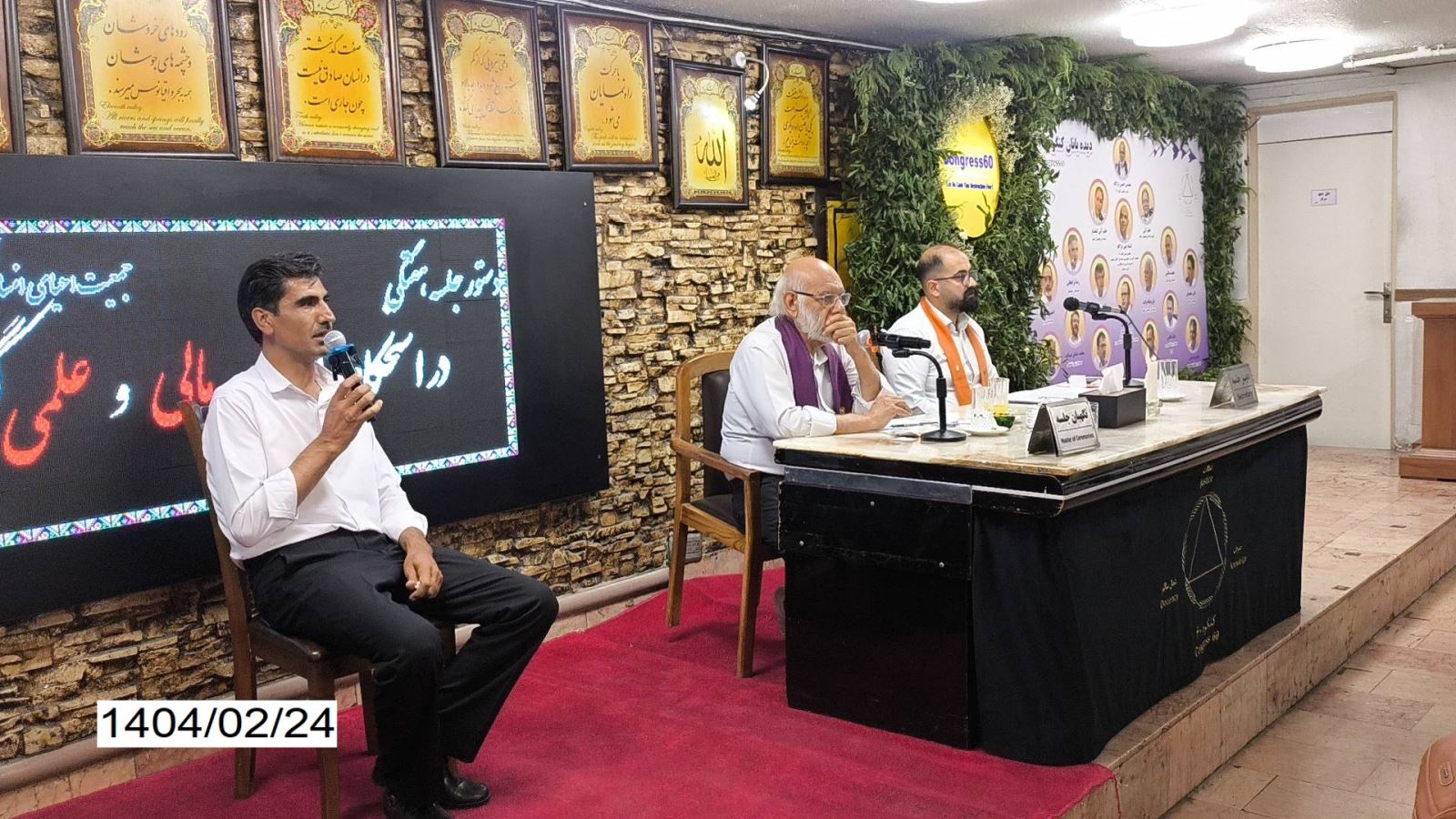
Consider the scale of the University of Congress 60 itself, it is 10,000 square meters. If we estimate costs at 30 million tomans per square meter, the total reaches 300 billion tomans. At 50 million tomans per square meter, the expenses surpass 500 billion tomans, even if the expenses of university were 200 billion, 300 billion, or 400 billion, it was a great amount. We are purchasing land in multiple cities, constructing buildings dedicated to Congress 60. Compare this to other groups [of addiction treatment], those which meet in parks or terminals, struggling for basic facilities like restrooms, enduring cold, heat, and harsh conditions. Meanwhile, Congress 60 members gather in the best locations.
So, you see, when it comes to building financial resources, since the day we started Congress 60—setting aside those first few months—we have never, by the grace of God, had to buy anything on credit. Whatever was needed, we acquired. Whatever was necessary, we purchased outright.
I have always said, if someone becomes a Pahlavan, a donor, or a person who has donated anything, and later decides they don’t want to be involved, they can come and take their money back. If they don’t want to continue and need their funds, they can retrieve them. If someone becomes a Pahlavan and, six months later, asks for their money back, we have told them they can come and get it—within a year, without any complications or difficulties. If they were caught up in troubles or faced challenges, they could return and take back their money. It’s simple.
Now, I have provided this knowledge for you. I have mentioned some of my contributions to Congress 60, though there are probably even more. I have trained specialized individuals for Congress 60 and have spoken about them to you. The gathering of resources has followed a similar pattern, though all of this was achieved with the help of other members of Congress 60. However, I set the main direction.
Now, if I were to sit and calculate whether Congress 60 owes me or I owe Congress 60—the truth is, I owe Congress 60. (Mr. Dezhakam cries.) I say this sincerely, not as a joke or out of politeness. I cannot repay what I have received. I am incapable of returning it. But if I ask myself whether I have settled my account, the answer is no. Even after all I have done, I have not balanced the scales. When I as the Base of Congress 60 owe Congress 60, you have to see and calculate how much Congress 60 has given you and how much you have contributed.
So, look at yourselves—what have you done? Because whatever we do, it is not for ourselves but for the greater good of humanity. Therefore, let us continue our efforts with full dedication and faith.
If we have done even a little bit, we should not consider ourselves entitled. Saying things like, “I have liberated four pupils from addiction,” “I served as a Border-Guard for two years and endured hardship,” “I was an Agent for four years and struggled”—what struggle? What has Congress 60 given to you, and what have you given back?
So, when we hold a meeting under the theme: “What have I done to strengthen the scientific and financial foundations of Congress 60?” we must each examine our actions in detail and reflect on them. Our goal is a great one. You cannot go into battle with a wooden sword. We have unwavering and complete faith that the method we are practicing is universal and will continue to spread because knowledge moves forward on its own. Currently, all research methods in the United States—led by William White, Dr. Sara, and several other professor are comparing Congress 60’s method with the treatment methods common in the US. They are examining why Congress 60 has achieved definite cure and recovery from addiction.
Cambridge University invited me to collaborate on a research project. They asked me to work with them, but I declined. For the treatment of certain diseases, they suggested conducting a joint project, but I said, “No, we will execute it ourselves.” They then invited me to join their network, and I agreed—to become part of a global network of scientists working in this field. That is a separate matter. This means we have reached that level of recognition. And so, as we continue forward, our focus should not be on ourselves, we have achieved liberation from addiction, that is done. Now, our thoughts must center on how we can help others.
Today, members from different cities come to us, saying, “We want Congress 60 in our city, in our village.” That is our current mindset—how can we extend this to others? This is the result of all our efforts: reaching liberation and balance, helping others, and being grateful. We must express our gratitude.
Gratitude for blessings increases them; ingratitude causes them to fade away [this a poem by Rumi, the great Iranian Poem]. Let us not overestimate our own efforts. If we magnify the things we have done while minimizing what Congress 60 has done for us—if we make our contributions seem great and others’ contributions seem insignificant—that is not the right way to think. If we truly judge ourselves fairly, we will see this reality. This is just the material aspect; the spiritual reward is in the hands of God. What we do here cannot even be measured in worldly terms. And God has promised that every spiritual effort carries material blessings as well. From the very beginning, Congress 60 was founded on spiritual principles, and material rewards followed. But spiritual wealth must be real, not just superficial words or empty slogans. It must not be a façade—true meaning lies in sincerity and integrity. I hope that during this week, you will thoroughly discuss these points.
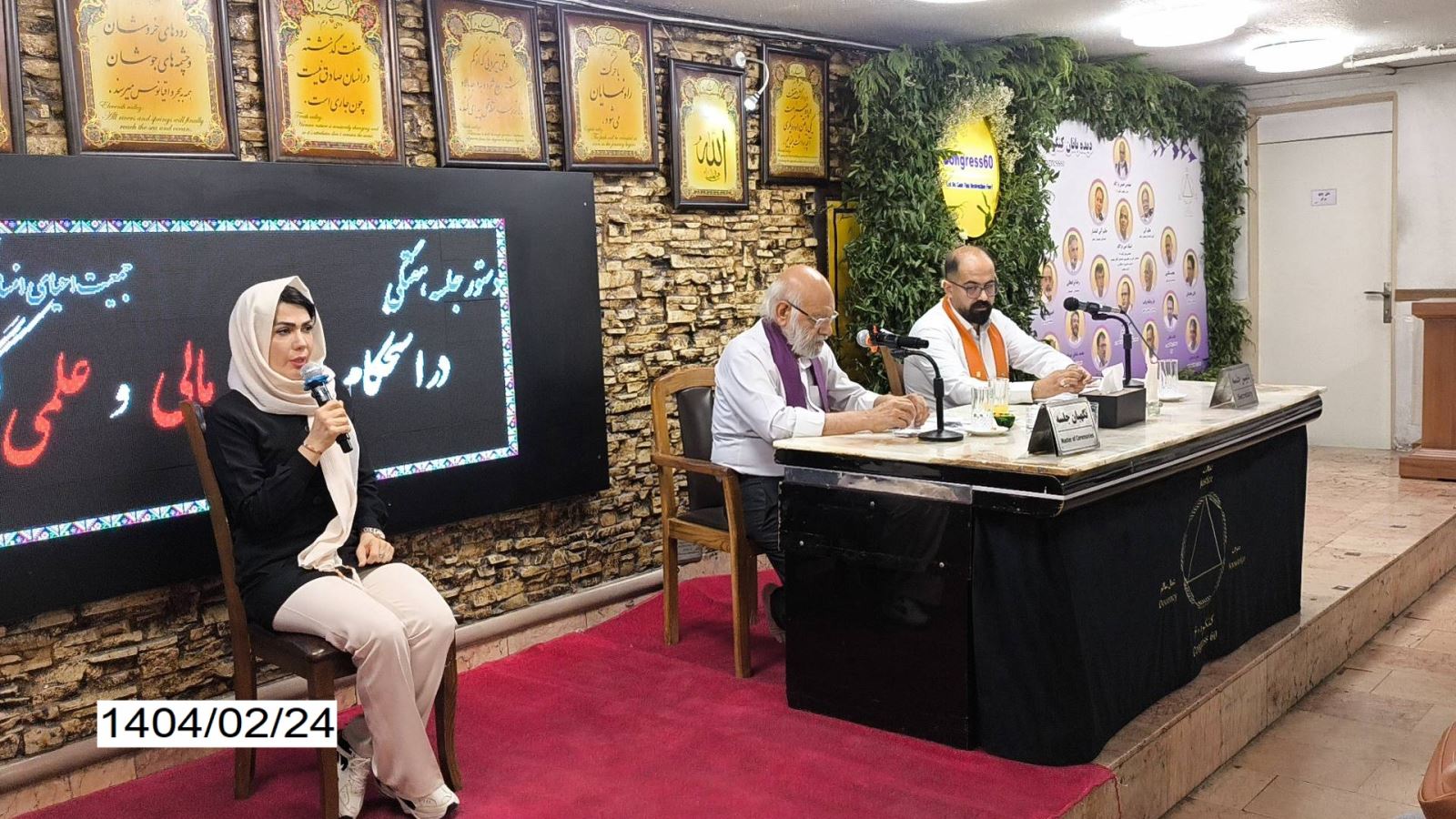
I wholeheartedly congratulate all dear members and Didebans (Watchmen) during Dideban’s Week. They face a difficult week ahead, as they must travel to different cities, visit various branches, and ensure that everything is functioning properly. Welcome them warmly. Treat them well. They are the carriers of Congress 60, explaining the key issues to you, and they represent the foundation upon which Congress 60 is built. They are the final decision-makers of Congress 60, the individuals responsible for shaping its future. Thank you.
As for “Golrizaan” (money donation) ceremony of 1403 (2024/2025), it will officially conclude at the end of this month as our agreement. However, I will extend the commitment deadline until the end of June to allow additional payments. Give them a round of applause in honor of their efforts. Today also we have to select the next secretary for Wednesdays and we have to elect them from companions’ group. There are 33 candidates for this position, I read their names, and they will be deleted one by one and the three last ones will be the secretary for 14 sessions, the first elected one will be the last secretary of the last session, the second one will be the secretary for six sessions and the last name will be a seven-session-secretary.
Thank you.
Translated by Elahe
